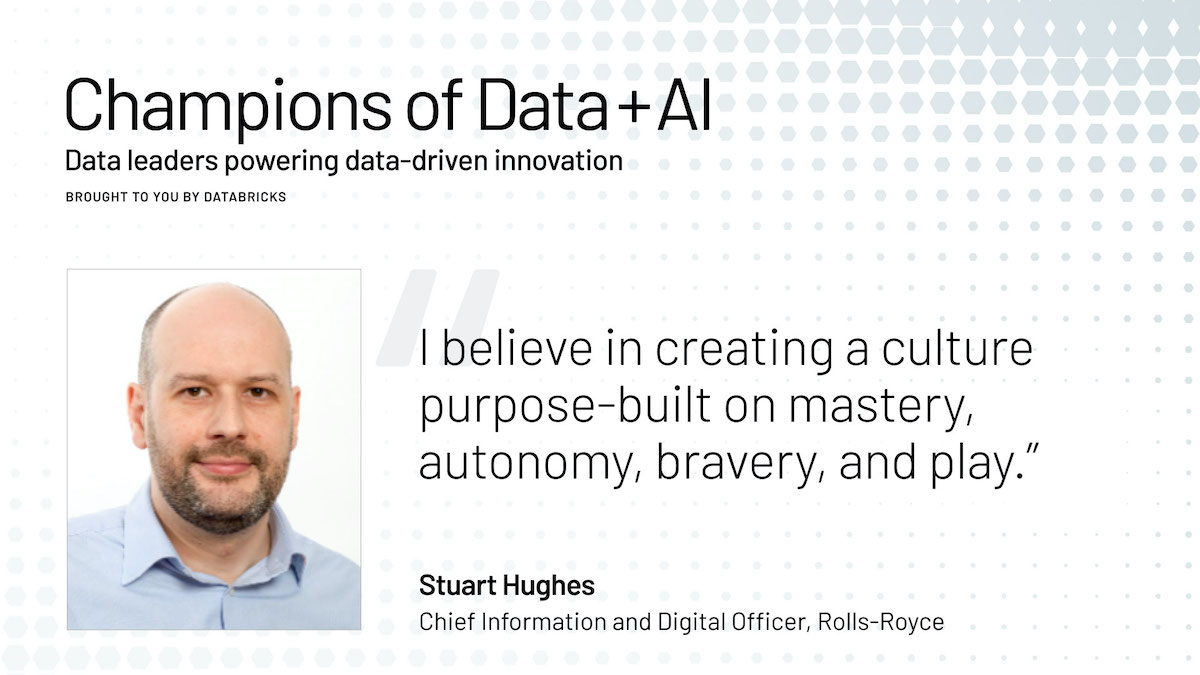Data Democratization: A Key to Building a Healthy Data Culture

Building a thriving data culture is a strategic priority for many organizations, but only 24% of enterprises have managed to forge a data culture.
What is a thriving data culture anyway? In its purest form, it’s when the entire organization - from the C-suite to the front-line workers - are making informed business decisions every day using readily available and relevant data. It’s when data is given greater weight than experience, intuition or tenure. However, building a successful data culture that creates new business value and competitive advantages is no simple task, and there is no easy button that makes it happen overnight. It requires a few key ingredients (data access, governance, data literacy, data-driven decision-makers and data architecture) that enable data to be easily manipulated and consumed.
In a world where data is growing exponentially, and advanced analytics and machine learning (ML) are becoming standards, why do so many organizations still struggle at creating a successful data culture? In this blog, you’ll get a glimpse into one data leader’s approach to nurturing a healthy data culture and key considerations for democratizing data.
The role of disruptive leadership
According to Stuart Hughes, Chief Information and Digital Officer of Rolls-Royce, one of the primary reasons organizations struggle at building thriving data cultures is because of the difficulty in bridging data silos and democratizing data throughout the entire enterprise. When silos around data are removed, every person in the organization has access to all the relevant data and tools to easily interpret and make data-driven decisions. In fact, a Microstrategies report reveals that only 3% of surveyed employees required to use data for business decisions can do so in seconds. Shockingly, 60% needed hours or days - an SLA that can clearly stifle innovation when compounded over long periods of time.
In our Champions Data + AI podcast, Stuart Hughes discusses how data democratization starts with disruptive leadership. When data leaders simplify the data architecture and empower data teams with the right tools and creative freedom to do their best work, they unleash the true power of data.
In addition, organizations need an approach to data that factors in:
- Managed access to all relevant data: Unlike the movie Frozen, you don’t want to open up the gates 100% to all the data to every user. Instead, you need to rationalize data access by roles. It’s about effectively using approaches like role-based-access control (RBAC) to ensure users within a particular security group have access to the relevant data to do their jobs. In fact, just as employees are provided their laptops/tablets and badges during new hire onboarding, the necessary data access to do their job should be part of this process. By doing this, you reduce the issue so that small data sets risk the effectiveness of exploration, experimentation, model development and model training -- resulting in inaccurate models when deployed into production and used with the full data sets. Poor data management ultimately creates massive amounts of rework when access to the full data set finally is granted.
- Increased data team productivity: Get your data teams focused on more analytics by increasing automation across data engineering, creation and sharing of data assets to reduce duplication and create efficiencies (i.e. data pipelines, reports/dashboards, code and ML models). Also, ensure your data architecture has the needed horsepower and set-up to offer the best performance, enabling you to increase the speed of experimentation.
- It’s not just the data; tools matter: The democratization of data also requires that users have a simple and intuitive way to understand the data, collaborate on the data and ML models and extract insights to make informed decisions. At the core of the toolset is the data and AI platform. Data and analytics leaders need to assess whether their platform is simple and easy to use. Is it open so data teams can easily work with existing tools and avoid proprietary formats? Lastly, is it collaborative so data engineers, analysts, and data scientists can work together and more efficiently?
Fostering an environment that lives and breathes data isn’t a feat achieved overnight but requires effective leadership that leads by example. Leadership that creates an environment for grassroots efforts to emerge, where experimentation is encouraged, and data-driven decisions are celebrated. None of this is possible unless leadership enables every decision-making body in the organization with all the relevant data to make informed data-driven decisions. Check out the full interview with Stuart Hughes to learn more about his disruptive approach to democratize data.
View the full interview with Stuart Hughes, Chief Information & Digital Officer Rolls-Royce.
Never miss a Databricks post
What's next?

Product
August 30, 2024/6 min read

